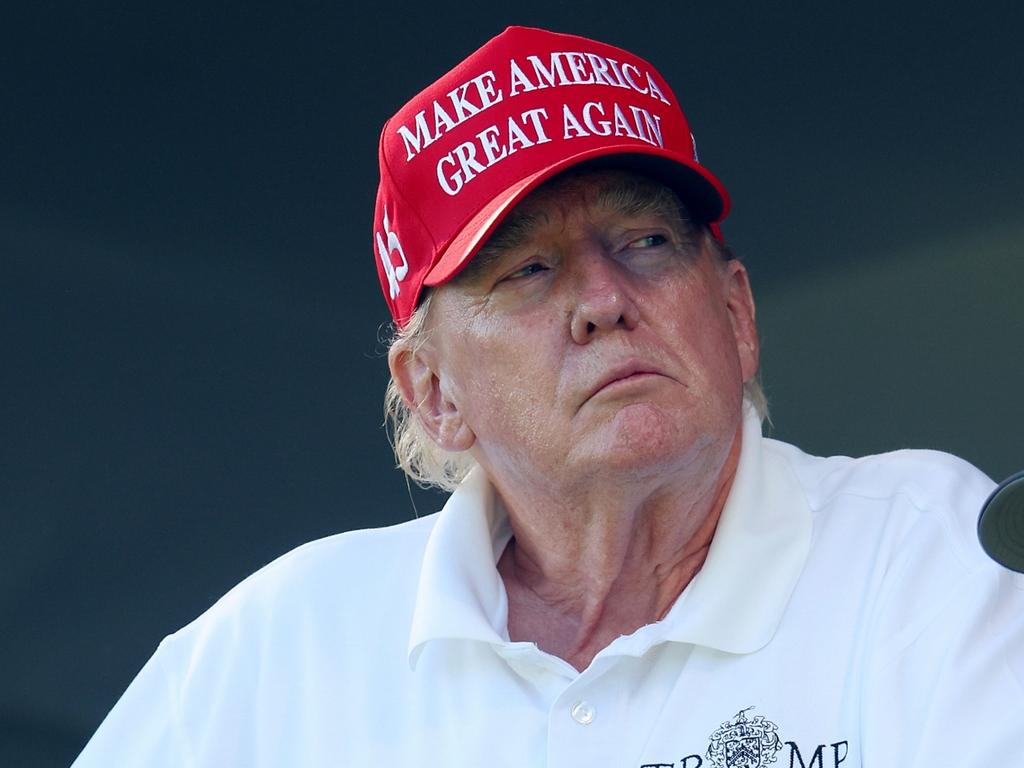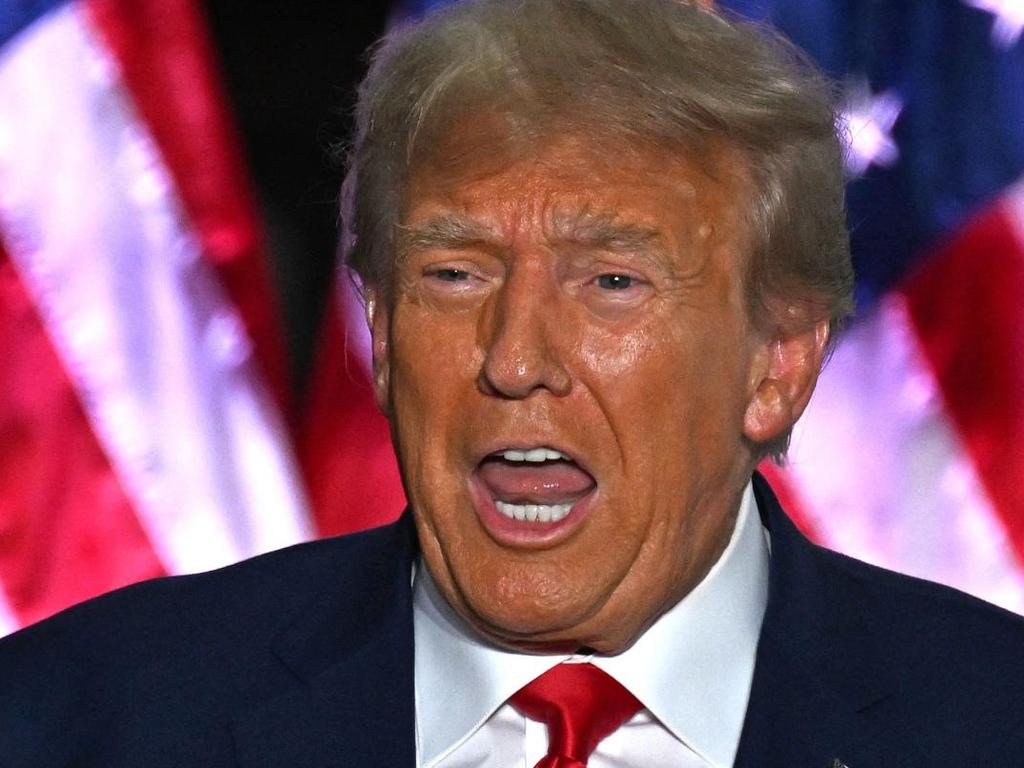
The former president was one of 19 people, including his motley crew of legal advisers such as Rudy Giuliani and Sidney Powell, indicted on 41 criminal charges (13 for Trump) on Monday (Tuesday AEST), marking the end of the deluge of criminal indictments of the former president over his behaviour surrounding the 2016 and 2020 presidential elections.
Much of the evidence, including the now infamous “find 11,780 votes” phone call from Trump to the secretary of State Brad Raffensperger in early 2021, also features in the federal indictment for election subversion, unveiled earlier this month, but the legal risks are greater this time.
For a start, if Trump is convicted in Georgia, he’s definitely going to jail: Georgia’s law imposes a mandatory five-year prison term for the racketeering crimes alleged.
Mr Trump was already facing a potential 641 years in prison from the 78 criminal charges already levelled against him in the three earlier indictments, but there the judges would have greater sentencing discretion, making it unlikely the 77-year-old would spend much, if any, time behind bars.
Worse for Trump, the state’s Republican governor Brian Kemp, even if he were so inclined, wouldn’t have the power to pardon the former president, Georgia being among only five US states to leave that power with a parole panel.
All this means the 18 co-conspirators charged alongside Mr Trump, most of whom don’t have anywhere near Mr Trump’s financial or political resources, might opt to co-operate with prosecutors as part of a plea deal, which could elicit further damaging evidence for the former president.
While the grand jury only heard arguments from Ms Willis, proving Trump has broken the state’s 1980 Racketeer Influenced and Corrupt Organization Act, passed to help prosecute mafia crime bosses, before a jury will be legally challenging.
The 98-page indictment tries to make the case that seemingly innocuous behaviours – making phone calls, sending emails, logging onto Zoom calls – were in fact part of a vast conspiracy among 19 individuals to overturn the state’s election results.
They in effect cast Donald Trump as a political mafia boss pulling strings across the country to engineer a win in Georgia.
The phrase “placed a telephone call” occurs 39 times in the indictment, “sent an email” 23 times, and, in what would be an odd way to conduct a conspiracy, “caused to be tweeted”, 10 times, which was a reference to Mr Trump’s routine ranting and raving to his 80 million plus Twitter followers.
Moreover, the indictment was briefly uploaded to internet a few hours before the grand jury had voted, according to Republicans, suggesting Ms Willis saw the outcome as forgone conclusion.
Trump’s supporters found the timing of the Georgia indictment suspicious too: why has it taken 2.5 years to process when the similar, federal charge sheet from Special Counsel Jack Smith took less than 1 year?
One thing in Trump’s favour in the Georgia case is the voter make-up of Fulton County, the most populous local government area in the state, taking in a population of over one million people across a big chunk of Atlanta’s suburbs.
A little over 25 per cent voted for Trump in 2020, a far higher share than did in Washington DC, where 92 per cent voted Democrat in 2020.








Donald Trump’s fourth indictment, by Georgia Democrat and state prosecutor Fani Willis, for allegedly trying to overturn the state’s election result in 2020, is his most dangerous yet.